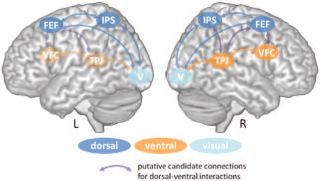
The 20 Mental Health Disorders That Can Be Treated with Proper Care
 Mental health disorders affect millions of people worldwide, making it a significant global health concern. However, with proper care and treatment, many of these disorders can be effectively managed, allowing individuals to live fulfilling and productive lives. In this article, we will explore 20 common mental health disorders that can be treated with proper care.
Mental health disorders affect millions of people worldwide, making it a significant global health concern. However, with proper care and treatment, many of these disorders can be effectively managed, allowing individuals to live fulfilling and productive lives. In this article, we will explore 20 common mental health disorders that can be treated with proper care.
1. Depression: Depression is a mood disorder characterized by feelings of sadness, hopelessness, and a loss of interest in daily activities. Treatment options include therapy, medication, and lifestyle changes.
2. Anxiety disorders: These disorders, including generalized anxiety disorder, panic disorder, and social anxiety disorder, can be treated through therapy, medications, and relaxation techniques.
3. Bipolar disorder: Individuals with bipolar disorder experience extreme mood swings, from manic highs to depressive lows. Medications and therapy can help manage these mood changes.
4. Schizophrenia: Schizophrenia is a chronic mental disorder that affects a person’s thinking, feeling, and behavior. With proper care, including medications and therapy, individuals can live fulfilling lives.
5. Obsessive-compulsive disorder (OCD): OCD causes individuals to have unwanted thoughts and engage in repetitive behaviors. Treatment includes therapy, medications, and exposure and response prevention techniques.
6. Post-traumatic stress disorder (PTSD): PTSD develops after experiencing or witnessing a traumatic event. Therapy, medications, and support groups can help individuals manage their symptoms.
7. Attention-deficit/hyperactivity disorder (ADHD): ADHD is a neurodevelopmental disorder that affects both children and adults. Treatment involves medication, therapy, and lifestyle adjustments.
8. Eating disorders: Disorders like anorexia nervosa, bulimia nervosa, and binge-eating disorder can be treated through a combination of therapy, nutrition education, and medications.
9. Borderline personality disorder (BPD): BPD is a mental health disorder characterized by unstable emotions, self-image, and relationships. With therapy and medication, individuals with BPD can learn to manage their symptoms.
10. Autism spectrum disorder (ASD): ASD is a developmental disorder that affects communication and social interaction. Early intervention, therapy, and support services can greatly improve individuals’ quality of life.
11. Substance use disorders: Addiction to substances like alcohol, drugs, or tobacco can be effectively treated through therapy, support groups, and medication when necessary.
12. Schizoaffective disorder: This disorder combines symptoms of schizophrenia and mood disorders. Treatment typically involves a combination of medications, therapy, and support.
13. Panic disorder: Panic disorder causes sudden and repeated episodes of intense fear. Therapy, medications, and relaxation techniques can help manage and reduce panic attacks.
14. Social anxiety disorder: Individuals with social anxiety disorder have an intense fear of social situations. Therapy, medication, and gradual exposure to social settings can help manage this disorder.
15. Specific phobias: Treatment for specific phobias involves therapy, desensitization techniques, and medications when necessary.
16. Insomnia: Insomnia is a sleep disorder that can be treated with therapy, lifestyle changes, and medications in some cases.
17. Seasonal affective disorder (SAD): SAD is a type of depression that occurs during specific seasons, usually winter. Light therapy, medications, and therapy can help manage SAD symptoms.
18. Body dysmorphic disorder (BDD): BDD is a disorder characterized by a preoccupation with perceived flaws in one’s appearance. Therapy, medications, and support can help individuals cope with this disorder.
19. Dissociative identity disorder (DID): DID, previously known as multiple personality disorder, is a condition where individuals have multiple distinct identities. Therapy is the primary treatment for DID.
20. Persistent depressive disorder (PDD): PDD, also known as dysthymia, is a chronic form of depression. Therapy, medication, and lifestyle changes can help individuals manage PDD symptoms.
It is important to remember that treatment and care plans may vary for each individual, and a personalized approach is crucial. If you or someone you know is struggling with a mental health disorder, seeking professional help is the first step towards proper care and treatment. With the right support and resources, individuals can live fulfilling lives, managing their mental health disorders effectively.






